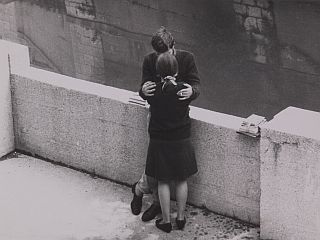Leon Dolinšek was an extraordinary Slovenian photographer who became best known for his portrayals of ordinary people. During his illustrious career, he also changed the course of Slovenian photojournalism.
Born in 1932, Dolinšek was given his first camera by his uncle after he had completed high school. In the 1960s, he got a job at Delo, the leading Slovenian newspaper. He continued his career at Tovariš, a popular weekly, where he developed a brand of magazine photojournalism comparable to the best work published in world’s leading weekly magazines, such as Life and Paris Match. For the first time in Slovenia, photography was not just an afterthought used to illustrate a story – it became a part of the story itself. His distinctive style consisted of telling stories by focusing on small, seemingly inconsequential details that ultimately revealed much more than previously-established photography.
Dolinšek then joined Slovenia’s Drama theater company as the official photographer. His instinct for interesting detail promoted him to go beyond the formal, conventional shots of actors on the stage. Instead, he photographed actors behind the scenes and at rehearsals, bringing the world of Slovenian theater to life like never before. He also photographed movie shoots, both in front of and behind the scenes, and created some of the most famous photographs of Slovenian actors and directors.
But it was ordinary people who turned out to be Dolinšek’s most memorable subjects. He spent hours observing the life of Ljubljana from his bedroom window above the famous “Evropa” Café. Hidden from the eyes of passersby, he captured the lives of ordinary people as they went about their daily business in the Slovenian capital. He got more a more intimate view of Ljubljana’s colorful citizens from the streets, which he walked on a constant lookout for faces that had interesting stories to tell. He was often seen walking in Ljubljana’s always-colorful central market and Tivoli Park with a camera around his neck.
In 2005, the prestigious Modern Gallery in Ljubljana organized a retrospective exhibit of Dolinšek’s work. He died four years later, at the age of 77.


































































